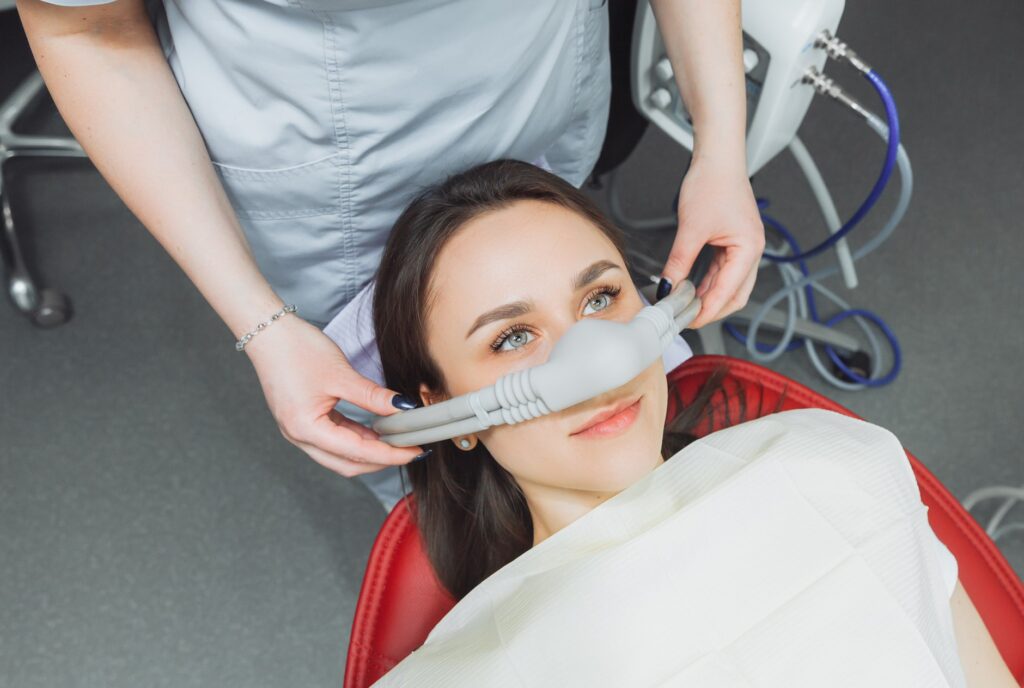What is Sedation in Dentistry?
Sedation in dentistry helps patients feel calm and relaxed during dental visits. Many people feel nervous about dental work. For this reason, dentists use safe sedation for dental procedures. Sedation can help reduce pain, fear, and discomfort. According to the American Dental Association (ADA), sedation is a common and safe practice in dental care.
Types of Sedation Used in Dentistry
There are several dental sedation options. Each type is chosen based on your needs and the procedure. Here are the main types:Inhaled Sedation (Nitrous Oxide): Also called laughing gas, it helps you relax. You stay awake and can respond to your dentist.Oral Sedation: You take a pill before your visit. It makes you feel sleepy but you are still awake.IV Sedation: Medicine is given through a vein. You may feel very drowsy or even sleep during the procedure.General Anesthesia: You are fully asleep. This is used for complex or long procedures.
Each option is safe when given by trained dental professionals.
Who May Need Dental Sedation?
Not everyone needs sedation. However, some people benefit more than others. You may need sedation dentistry for anxiety or if you:Feel very anxious or afraid of dental visitsHave a low pain thresholdCannot sit still for long periodsNeed a lot of dental work in one visitHave a strong gag reflexAre a child or have special needs
Talk to your dentist to see if sedation is right for you.
Benefits and Risks of Sedation in Dentistry
There are many benefits to sedation in dentistry. For example, it helps you stay calm and comfortable. It can also make long or complex treatments easier. In addition, sedation dentistry for anxiety can help you get the care you need.
But, like any medical treatment, there are some risks. Side effects may include:Drowsiness after the procedureNausea or headacheAllergic reactions (rare)Breathing or heart problems (very rare)
According to the ADA and CDC, these risks are low when sedation is used by trained dentists. Always share your full medical history with your dentist.
How to Prepare for Sedation
Before your visit, your dentist will give you instructions. For example, you may need to:Avoid eating or drinking for several hours before the procedureArrange for someone to drive you homeWear comfortable clothingShare your full medical history and any medicines you take
Following these steps helps keep you safe during sedation.
What to Expect During and After Sedation
During sedation, you will feel calm and relaxed. In most cases, you will still be able to respond to your dentist. However, with deeper sedation, you may not remember the procedure.
After the procedure, you may feel sleepy or groggy. For this reason, you should not drive or use heavy machines for the rest of the day. Most people recover quickly and feel normal within a few hours.
Safety Tips and Precautions
To stay safe, always follow your dentist’s advice. Here are some important tips:Only get sedation from trained dental professionalsTell your dentist about all health problems and medicinesFollow all instructions before and after your visitHave a friend or family member with you if needed
In addition, ask questions if you are unsure about anything.
Frequently Asked Questions
Is sedation in dentistry safe? Yes, it is safe when given by trained dentists. The ADA and CDC support its use for many patients.Will I feel pain during sedation? Most people feel little or no pain. Sedation helps you relax and reduces discomfort.How long does it take to recover? Recovery is usually quick. You may feel sleepy for a few hours.Can children get dental sedation? Yes, children can get sedation if needed. Dentists use special care for young patients.Is sedation dentistry covered by insurance? Sometimes, insurance may cover sedation. Check with your provider for details.
If you live in your city or region, ask your dentist about sedation dentistry in your area. This can help you find the best dental sedation options near you.
In summary, sedation in dentistry can make dental visits easier and less stressful. Consult your dentist to find out if sedation in dentistry is right for you.

